100 Years of Now Library
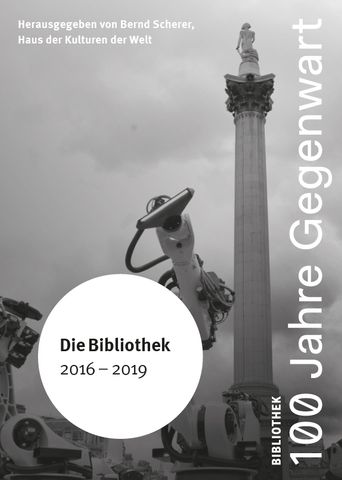
The present rules, encroaching upon the entire period of time at our disposal. Under the pressure of the present, contemporary thinking often lacks both an historical awareness and a future horizon. The book series 100 Years of Now Library aims to confront this traditional understanding of the present with other concepts of time.
Each volume covers the time span of a century in order to examine historic upheavals in politics, economics, spirituality, technology and culture that characterize both the present and and the future. They thereby identify transformations for which alternative endings were conceivable and reveal continuities.
The series re-addresses core issues of the past hundred years: the housing question, the ongoing relevance of the artistic avant-gardes, the correlations between war and technology, the influence of historical feminist and anarchist movements, questions of political classification systems, disturbances in the metabolism of the planet, data production and cybernetics and, not least, notions of history and of time itself. Where were potentials left undeveloped, where were questions left unanswered and where does history offer alternatives? How can the past be instilled in the present not as a relic, but as lived experience and a resource for the future?
The volumes of the 100 Years of Now Library, published by Matthes & Seitz in Berlin, penetrate deep into the paradigms of our age to showcase new ways of appraising current issues. They reflect the program of events of the four-year project 100 Years of Now 2015 – 2019 and will conclude with the Dictionary of Now.
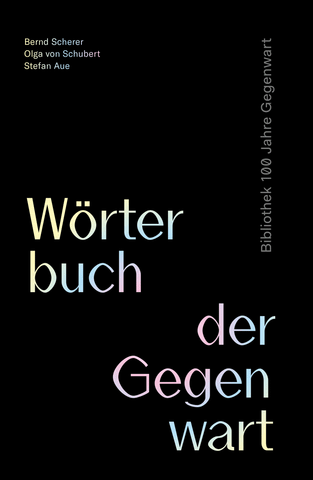
Wörterbuch der Gegenwart
Volume 13, 2019
Edited by Bernd Scherer, Olga von Schubert and Stefan Aue
What comes after universalism? Many of the categories and concepts of modernity carry on historical interpretive patterns from which critical, post-colonial and feminist thinkers worldwide are distancing themselves. But how can we communicate about a globalized present without agreeing on certain basic concepts? The Wörterbuch der Gegenwart (Dictionary of Now) uses the examples of the twelve keywords Fear, Image, Thing, Violence, Justice, Body, Market, Politics, Language, Animal, Truth and Time to show how definitions can be reassessed by established voices.
More about the book
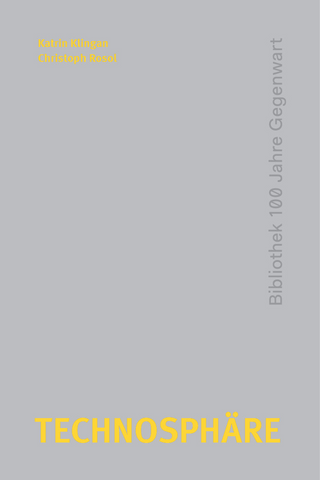
Technosphäre
Volume 12, 2019
Edited by Katrin Klingan and Christoph Rosol
What happens when technologies and techniques become planetary players? Over the course of the twentieth century, a new component of the global system established itself: the technosphere, comparable in its effects and function with the biosphere or the hydrosphere. The concurrence of natural environments with technical infrastructures and the almost uncontrollable evolutionary dynamics of growing “technological biodiversity” raise new questions about the initiation and operation of technical omniscience.
More about the book

100 Jahre Copyright
Volume 11, 2019
Edited by Detlef Diederichsen and Lina Brion
A fierce battle is currently raging over copyrights: On the one side are all those who built their business models around rights utilization – publishers, labels and production companies; on the other are the representatives of the digital economy – telecommunications companies, web service providers, software and hardware producers. The victims of this dispute are creative people, who are finding it increasingly difficult to make a living from their work because the legal basis for generating their income originated in the pre-digital era.
More about the book
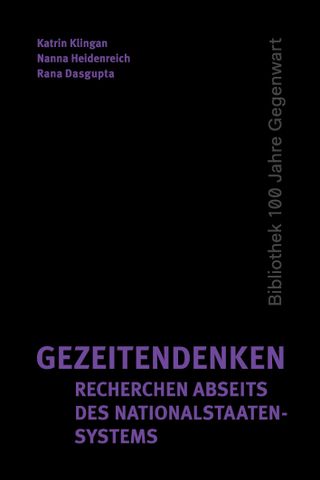
Gezeitendenken
Recherchen abseits des Nationalstaatensystems
Volume 10, 2020
Edited by Katrin Klingan, Nanna Heidenreich and Rana Dasgupta
The publication brings the nation state as the only possible political system today into question. Beginning by asking about options available that go beyond national structures, the book analyzes the structural foundations of the nation-state system and seeks out political and aesthetic strategies to expose its failures in key issues. The volume is arranged using two metaphors: sand and sea. The materiality of sand represents the pathological state of nationally defined territories and global capitalism. By way of contrast, the sea expresses fluid visions and conveys messages of political alternatives. The meeting of sand and sea allows for “tidal thinking” – a rhythmic exchange that transforms contours and categories, thus opening up new possibilities for the future.
More about the book
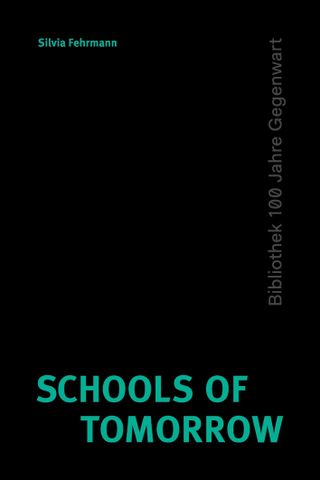
Schools of Tomorrow
Volume 9, 2019
Edited by Silvia Fehrmann
One school reform is followed by another, exhausting teachers and parents alike. The educational system is being readied for a future driven by business interests, a future to which, however, only a few are looking forward. One hundred years ago, by contrast, educational reformers across the globe strove to create opportunities for new ways of acting and thinking. The volume examines how the experimental practices of the past can be applied to today’s learning under digital conditions. How can schools become places where alternative designs of the future are created?
More about the book

Utopie und Feminismus
Volume 8, 2018
Edited by Annemie Vanackere and Sarah Reimann
The Russian Revolution created the most progressive, completely gender-neutral marriage and family legislation the modern world had ever seen. Homosexuality, the endorsement of which is punishable in today’s Russia, was legalized in Russia in 1918. The beginnings of the Russian Revolution were not only ahead of their own time, but also ahead of ours. Its ideals, as its reality, are not only once again contemporary, but also still visionary. This volume, created together with the theater HAU Hebbel am Ufer, is devoted to the transformation of historical utopias of equality over the last hundred years, starting with the writings of the feminist author Alexandra Kollontai and the productions of female artists invited to contribute by HAU Hebbel am Ufer.
More about the book
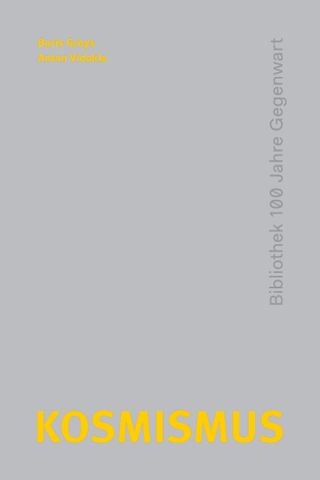
Kosmismus
Volume 7, 2018
Edited by Boris Groys and Anton Vidokle
In the late 19th and early 20th centuries, the Russian Cosmists aimed to make humanity immortal through technology, thereby redeeming the Christian promise of resurrection in the here and now. The arts played a central role in these endeavors. Because of their ability to perpetuate things, they were regarded as equal in stature to the natural sciences and medicine. Based on historical Cosmism, this volume examines materialism as the central mode of thought of the 20th century against the backdrop of new philosophical trends like speculative realism, new materialism and transhumanism.
More about the book

2 oder 3 Tiger
Koloniale Geschichten, Medien und Moderne
Volume 6, 2017
Edited by Hyunjin Kim and Anselm Franke
Based on the exhibition of the same name, the volume compiles essays by leading East Asian intellectuals. The tiger is the basis for reflection on modernization ideologies and the way that culture and life are altered under the prevailing circumstances and identities are destabilized or solidified. Modernity is reflected as a colonial scheme that is inscribed in the history of nation states, militarization and financialization, but also as a comprehensive new order of the world and worldviews that in the past 200 years has led to a profound crisis of consciousness in most societies.
More about the book
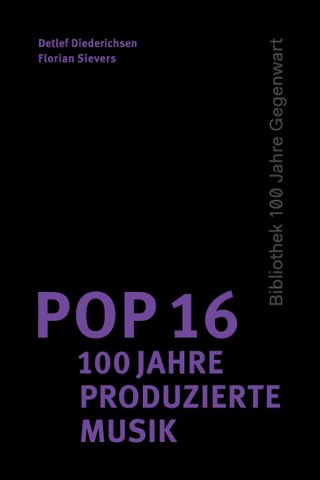
Pop 16
100 Jahre produzierte Musik
Volume 5, 2017, in German
Edited by Detlef Diederichsen and Florian Sievers
Similar to the way that photography captured light, wax cylinders and shellac records were the first to capture the sounds of their age one hundred years ago. It was a step that would have far-reaching consequences. It not only would change how people listened to music, but also had an effect on the music itself. How did the first produced, deliberately tonally designed recordings shape listening habits? How did the recording media, which began to traverse the world without human accompaniment, transform entire musical styles?
More about the book
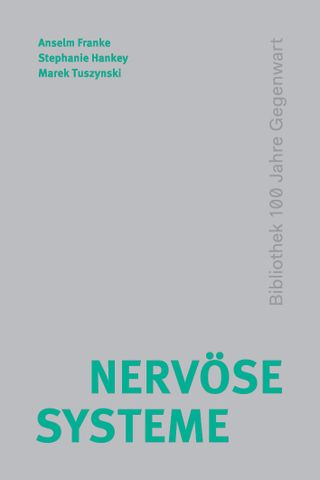
Nervöse Systeme
Volume 4, 2017, in German
Edited by Anselm Franke, Stephanie Hankey and Marek Tuszynski
Today, the nervous system has become the leitmotiv of an increasingly nervous, technologically highly equipped age. Companies talk about “smart nerves” and “synaptic real-time connections” as organizational solutions for almost any problem, whether in apparatuses of the state, economy or ecology. The volume examines how the new trust in technological solutions and databased algorithms, supported by data analysis, reality mining, pattern recognition and forecasts, has changed our understanding of the “self” and the “social.” It frames the examination of data in social and political strategies of the past hundred years.
More about the book
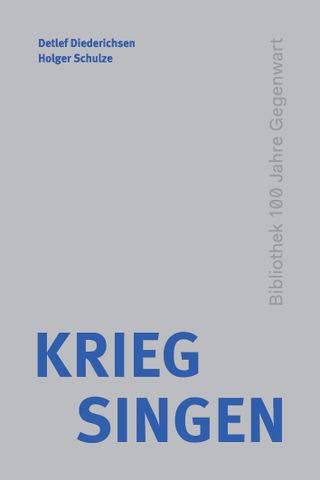
Krieg singen
Volume 3, 2017, in German
Edited by Detlef Diederichsen and Holger Schulze
Why do war and music go so well together? Music plays a decisive role in war propaganda and warmongering, and – most recently – in the soundtracks of beastly execution videos. On the other side, much of music promotes peace and non-violence, as well as something akin to musical mourning. The publication compiles theoretical reflections, written collages and interviews on the connections between war, technology, and music.
More about the book
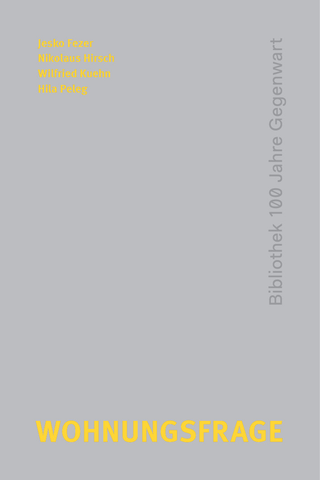
Wohnungsfrage
Volume 2, 2017, in German
Edited by Jesko Fezer, Nikolaus Hirsch, Wilfried Kuehn and Hila Peleg
Housing shortages, gentrification, luxury renovations, refugee housing – after decades characterized by a supposedly self-regulated market, the housing issue is back as a sociopolitical matter. How do we want to live in the future, what should our cities look like? An analysis of the historical topoi that still determine housing to this day: inequality, neighborhood, migration, living, and working. And the demand for a new housing policy.
More about the book
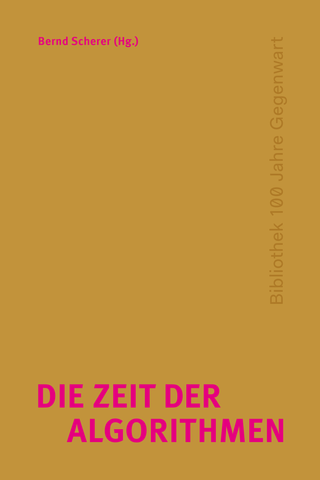
Die Zeit der Algorithmen
Volume 1, 2016, in German
Edited by Bernd Scherer
Under pressure from the present, contemporary thinking often lacks both an awareness of history and a future horizon. How did we develop this fixation on an instant, on the present moment? In the first volume, Die Zeit der Algorithmen, the science researcher Helga Nowotny, author of the visionary book Eigenzeit (1989), and HKW director Bernd Scherer examine how notions of time evolved between capitalism, armed conflicts and technological progress, how time is experienced today, what alternatives there may be to the ever more global raster of acceleration and timing and what role the peripheries and margins of the algorithm play in it all. More about the book